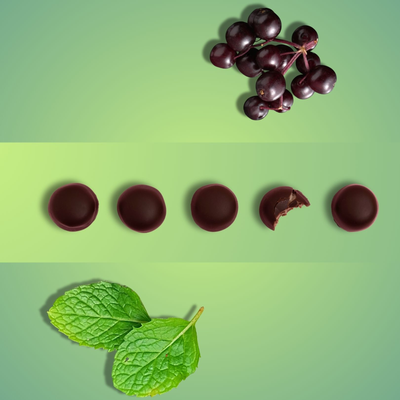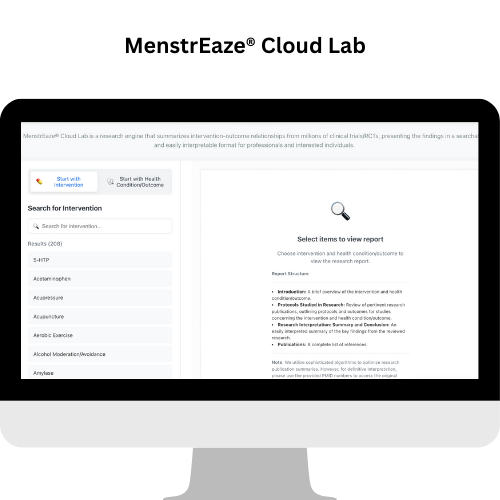Seaweed snacks have emerged as a popular choice in the ever-evolving landscape of healthy eating. Once considered a niche food item, these crispy, often flavorful sheets of dried seaweed are now readily available in most supermarkets, appealing to a broad range of consumers seeking a lighter and potentially more nutritious alternative to traditional snacks. The perception surrounding seaweed snacks often positions them as a guilt-free indulgence, a low-calorie option that might even offer some health advantages. This exploration aims to delve into the nutritional composition and potential health benefits of seaweed snacks, with a particular focus on how they might support the well-being of women, especially in relation to their unique health needs and experiences with menstruation.
Seaweed, the primary ingredient in these snacks, is far more than just a simple sea plant. It stands out as a nutritional powerhouse, brimming with a diverse array of vitamins, minerals, and other beneficial compounds [1]. Among the impressive list of vitamins found in seaweed are Vitamin A, various B vitamins (including the often elusive B12 in some types), Vitamin C, Vitamin E, and Vitamin K [2]. This wide spectrum of vitamins suggests that incorporating seaweed snacks can be a simple way to contribute to overall micronutrient intake, which plays a vital role in supporting numerous bodily functions.
Beyond vitamins, seaweed boasts a remarkable mineral profile, encompassing iodine, calcium, iron, magnesium, potassium, zinc, copper, and manganese, among others [1]. In fact, the mineral concentration in seaweed can be significantly higher than that found in many land-based vegetables [14]. This ability to absorb and concentrate minerals from the ocean environment contributes to its unique nutritional value. Several of these minerals hold particular significance for women's health. Iodine, for instance, is crucial for the proper functioning of the thyroid gland, which in turn regulates hormonal balance, metabolism, and energy levels – all factors of considerable importance for women across their lifespan [2]. Iron is another key mineral, playing a vital role in preventing iron deficiency, a condition that can affect many women, especially those with regular menstrual cycles [2]. While the amount of iron per serving of seaweed snacks can vary, consistent consumption can contribute to overall daily intake. Calcium and magnesium are also present in seaweed, contributing to bone health and potentially offering relief from muscle cramps and premenstrual syndrome (PMS) symptoms [2]. Furthermore, some types of seaweed, such as nori, contain Vitamin B12, which is essential for nerve function and red blood cell formation, making it a potential dietary source for individuals following vegetarian and vegan diets, although the body's ability to absorb this form of B12 is a subject of ongoing discussion [3]. Seaweed also provides dietary fiber, which is important for digestive health and can contribute to feelings of fullness, potentially aiding in weight management [2]. Additionally, small amounts of protein and healthy fats, including omega-3 fatty acids in some varieties, can be found in seaweed, adding to its overall nutritional profile [2].
To provide a clearer picture of the nutritional content, the following table compares the nutrient profiles of several popular seaweed snack brands based on available data:
|
Brand |
Flavor |
Serving Size |
Calories |
Fat (g) |
Sodium (mg) |
Carbs (g) |
Fiber (g) |
Sugars (g) |
Protein (g) |
Iodine (mcg) |
Iron (mg) |
Calcium (mg) |
|
gimme Seaweed |
Sea Salt |
2g |
30 |
2 |
40 |
<1 |
<1 |
0 |
1 |
55 |
0.3 |
0 |
|
Annie Chun's |
Sea Salt |
5g |
25 |
1.5 |
80 |
1 |
1 |
0 |
<1 |
N/A |
0 |
4 |
|
Ocean's Halo |
Sea Salt |
4g |
20 |
1.5 |
80 |
<1 |
1 |
0 |
<1 |
N/A |
0 |
4 |
|
Sea Crunchy |
Wasabi |
5g |
26 |
1.4 |
28 |
1.8 |
1 |
0 |
1.3 |
N/A |
0.3 |
10 |
|
Public Goods |
Seaweed Snacks |
40g |
170 |
5 |
210 |
28 |
3 |
8 |
4 |
N/A |
1 |
22 |
|
KIM NORI |
Sea Salt |
4g |
20 |
2 |
45 |
1 |
1 |
0 |
1 |
N/A |
0.25 |
10 |
|
Delicious Kit. |
Roasted Seaweed |
4.5g |
N/A |
2 |
85 |
1 |
1 |
0 |
1 |
N/A |
0.4 |
10 |
Note: Nutrient values can vary slightly between specific products and batches. N/A indicates the information was not readily available in the provided snippets.
Beyond their basic nutritional composition, incorporating seaweed into the diet, even through convenient snacks, can offer a range of general health benefits. The significant iodine content plays a crucial role in supporting thyroid function [2]. The thyroid gland produces hormones that are essential for regulating metabolism, energy production, and numerous other bodily processes. Maintaining optimal thyroid function is particularly important for women due to its influence on menstrual cycles, fertility, and overall hormonal balance. Seaweed also acts as a prebiotic, meaning its fiber content helps to feed the beneficial bacteria in the gut [2]. A healthy gut microbiome is increasingly recognized for its wide-ranging impact on health, including digestion, nutrient absorption, immunity, and potentially even mental health and hormonal regulation, making this benefit particularly relevant for women's overall well-being. Furthermore, seaweed consumption has been linked to potential benefits for heart health [2]. Compounds found in seaweed, such as polyphenols and fiber, may contribute to lowering bad cholesterol (LDL), reducing blood pressure, and acting as antioxidants to protect blood vessels. Given that heart disease is a major health concern for women, incorporating heart-healthy foods like seaweed snacks can be a positive step towards long-term cardiovascular well-being. Some research also suggests that seaweed may play a role in blood sugar regulation [2]. Certain compounds in seaweed, including fucoxanthin and alginates, may help improve insulin sensitivity and stabilize blood glucose levels, potentially reducing the risk of type 2 diabetes. Maintaining stable blood sugar is important for consistent energy levels, mood stability, and the prevention of long-term health issues, all of which are significant for women's health. The antioxidants and prebiotics present in seaweed may also contribute to boosting the immune system [2]. A strong immune system is vital for overall health, enabling women to maintain their active lives and cope with daily stressors. For those looking to manage their weight, seaweed snacks can be a helpful addition to their diet due to their high fiber and low calorie content [2]. The fiber promotes satiety, which can help reduce overall calorie intake. Finally, early research indicates that certain compounds in seaweed, such as fucoidan and polyphenols, may possess anticancer properties, although more studies are needed in this area [5].
Considering the unique physiological needs of women, seaweed snacks offer several potential benefits tailored to their health. The crucial role of iodine in supporting thyroid health directly impacts the production of estrogen and progesterone, the primary female sex hormones [11]. Adequate iodine intake can contribute to maintaining a healthy balance of these hormones, which influences menstrual cycles, mood, and energy levels. Emerging research also suggests that seaweed might influence estrogen metabolism, potentially offering benefits during perimenopause and menopause [11]. Some studies indicate that regular seaweed consumption may support the proper metabolism of estrogen, which can be particularly important as women experience declining estrogen levels during these life stages [11]. The prebiotic fiber in seaweed also nourishes the gut microbiome, which plays a role in utilizing and flushing out estrogen, potentially impacting mood swings, libido, weight fluctuations, and hot flashes associated with menopause [11]. Furthermore, the presence of iodine and omega-3 fatty acids in seaweed might offer some support for women with Polycystic Ovary Syndrome (PCOS) by influencing hormone production and reducing inflammation [18]. The calcium, magnesium, and vitamin K found in seaweed are also vital for maintaining strong and healthy bones [4]. As women are at a higher risk of osteoporosis, especially after menopause, incorporating these nutrients through dietary sources like seaweed snacks can be beneficial. The antioxidants present in seaweed can also help combat the increased oxidative stress that can occur during hormonal shifts such as perimenopause and menopause, potentially contributing to healthy aging [11].
For women experiencing menstruation, seaweed snacks offer potential benefits that could help alleviate some common symptoms. The iron content in seaweed, while perhaps not substantial in a single snack serving, can contribute to replenishing iron levels lost during monthly periods [2]. The magnesium found in seaweed may help to relax muscles, potentially easing menstrual cramps, a common and often debilitating symptom [2]. Additionally, some types of seaweed contain omega-3 fatty acids, known for their anti-inflammatory properties, which could help reduce inflammation and associated period pain [4]. It's worth noting the findings from small studies involving bladderwrack, a specific type of brown seaweed. These studies suggested that consuming bladderwrack might lengthen menstrual cycles, reduce the duration of periods, and even alleviate pain in women with endometriosis, potentially due to its impact on estrogen levels [37]. However, it is important to remember that this research is preliminary and involved a specific type of seaweed, not necessarily the varieties commonly found in snack form. During menstruation, some women may experience increased cravings or a need for more nutrient-dense foods. Seaweed snacks offer a low-calorie yet nutrient-rich option that can help satisfy these cravings without the drawbacks of less healthy alternatives [45].
While seaweed snacks offer numerous potential benefits, it's important to be aware of potential downsides and to consume them safely. One of the primary concerns is the high iodine content in seaweed, particularly in certain varieties like kombu [2]. While iodine is essential for thyroid function, excessive intake can lead to thyroid dysfunction, including both hypothyroidism and hyperthyroidism. Individuals with pre-existing thyroid conditions should exercise caution and consult their doctor about their seaweed snack consumption. Another potential concern is the presence of heavy metals in seaweed, as these marine plants can absorb substances from seawater [2]. However, in most commercially available edible seaweed, the levels of heavy metals are generally considered low and safe. Choosing organic and reputable brands can further minimize this risk. Seaweed also contains Vitamin K, which could potentially interact with blood-thinning medications like warfarin [5]. Additionally, the high potassium content might be a concern for individuals with kidney disease [5]. It is advisable for women taking such medications or with kidney issues to consult their healthcare provider before regularly consuming seaweed snacks. Although rare, allergic reactions to seaweed are possible [8]. Furthermore, some individuals may experience skin irritation from direct contact with certain types of algae [53]. If any adverse reactions occur, consumption should be discontinued. To ensure safe consumption, moderation is key. It's best to avoid excessive daily intake and to incorporate seaweed snacks as part of a varied and balanced diet, rather than relying on them as the sole source of essential nutrients. Reading product labels to be aware of iodine content and other ingredients is also recommended. Choosing organic and sustainably sourced brands can be a good practice. Finally, consulting with a healthcare professional is always advisable, especially for individuals with underlying health conditions or concerns.
The world of seaweed snacks is surprisingly diverse, offering a variety of types, flavors, and formats to suit different preferences. The most common type of seaweed used in snacks is nori, the same seaweed used for sushi [2]. However, other types like wakame, often found in seaweed salads, and dulse, which can be eaten as flakes or crisps, are also available in snack form. Kombu, while less common as a standalone snack, is sometimes used to add flavor. Different types of seaweed have varying nutritional profiles, particularly in their iodine content, so the type of seaweed in a snack can influence its health benefits and potential risks [4]. Beyond the natural taste of seaweed, a wide array of flavors are available in the market. Sea salt is the most common, but consumers can also find options like sesame oil, wasabi, teriyaki, chili lime, olive oil, and Korean BBQ [3]. This variety of flavors makes seaweed snacks appealing to a broader audience. Seaweed snacks also come in different formats, including thin roasted sheets that are often seasoned, crispy flakes that can be sprinkled on other foods, seaweed chips that may be mixed with other ingredients, and even seaweed jerky, offering different textures and ways to enjoy this marine treat [3]. Popular brands like gimme Seaweed, Annie Chun's, Ocean's Halo, SeaSnax, and Tao Kae Noi offer a wide selection of these diverse options [3].
Exploring the online buzz surrounding seaweed snacks can provide valuable insights into real women's experiences. Many users report positive sentiments regarding the taste and convenience of seaweed snacks as a low-calorie option for satisfying cravings [15]. Some women share anecdotal evidence of experiencing benefits for energy levels, digestion, and even a reduction in period symptoms after incorporating seaweed products into their diet [11]. For instance, some reviews mention reduced bloating and improved digestion [62]. There are also specific products, like Rootless Daily Bites, that are marketed towards women for hormone health and menopause support, with some users reporting positive experiences with energy levels and digestion [11]. While these personal accounts are not a substitute for scientific evidence, they can offer encouragement and provide a glimpse into the potential real-world benefits that some women have experienced. It is important to remember that individual experiences can vary, and what works well for one person may not have the same effect on another [37].
In conclusion, seaweed snacks offer a compelling nutritional profile with a range of potential health benefits, particularly for women. Their rich content of vitamins, minerals like iodine and iron, and fiber can contribute to overall well-being. The potential advantages for women's health, including supporting hormonal balance, bone density, and potentially easing menstrual symptoms, make them an interesting dietary addition. However, it is crucial to consume seaweed snacks in moderation due to their high iodine content and to be aware of potential interactions with medications or contraindications for certain health conditions. Exploring the diverse types and flavors available can make incorporating these ocean-sourced snacks into a balanced and healthy lifestyle both enjoyable and potentially beneficial for women seeking to support their unique health needs.





